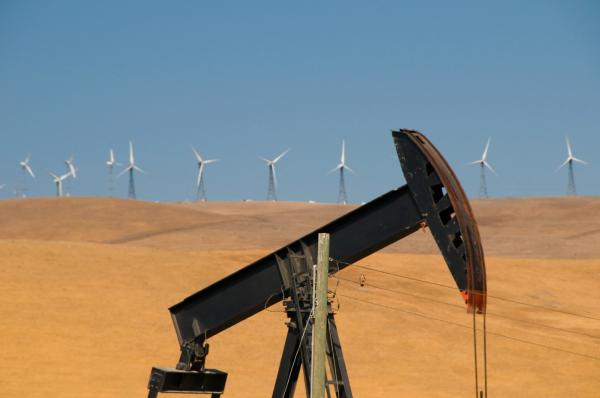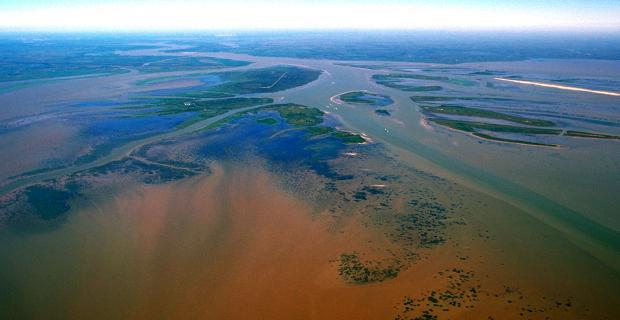The Challenge of Peak Oil

The world is entering a period of change unlike any in history.
This will be an inherently perilous time, because it will involve a forced and rapid transformation in the energy system on which our societies, and our very lives, depend. The transformation will involve the invention of new technologies and the exploitation of new resources — as was the case with earlier great economic watersheds. But this time change will be propelled not merely by new opportunities. Instead, it will be thrust upon us as a result of the depletion of the energy resources that enabled the creation of industrial economies throughout the past two centuries: namely coal, oil, and natural gas — though first and foremost, oil.
Oil was the main driver of growth during most of the twentieth century, and it is the world's primary transportation fuel. We have become overwhelmingly dependent on this energy-dense and versatile substance because it is so cheap and convenient as compared with all previous energy sources.
Less than two centuries ago, most of the work done in even the wealthiest nations was accomplished by muscle power (human or animal). But muscles are puny compared to fuel-fed engines. We learned this with engines fed first with wood, then coal. But oil is a fuel superior to either of these. So magical are the benefits of oil that it was inevitable that we would find more and more uses for it. And so we have built an entire way of life around it.
The world is not about to run out of oil. There are still many hundreds of billions of barrels of petroleum that can be extracted from the Earth's crust. However, the rate at which oil can be extracted is subject to geological limits, and soon those limits will begin to constrain our ability to produce oil at the ever-expanding rates that growing economies demand. If we are not already doing so, we soon will be entering the transition from a century-and-a-half during which the available supply of oil grew each year, to a future characterized by declining annual supplies. This transition is commonly referred to as Peak Oil.
The basic concept of Peak Oil is derived from experience: during the past century-and-a-half all older oil fields have been observed to peak and decline in output. The same has been noted with the collective oil endowment of whole nations. Few doubt that the rate of oil production for the world in total will reach a maximum at some point and then begin its inevitable decline.
For a large region, such as a nation, the rate of discovery of oil typically reaches a maximum several decades prior to the production peak. This was the case, for example, in the US, the first important producing country to begin its decline. During the early twentieth century, the US was the world's foremost producer and exporter of oil. Discoveries were dramatic and abundant, but began to fall off sharply after 1930. In 1970, the rate of US oil extraction reached its all-time maximum, and has generally declined since then (though later discoveries in Alaska and the Gulf of Mexico helped moderate that decline). Today the United States imports almost two-thirds of the oil it uses.
Indonesia offers another example of the power of depletion. Exploration there began in the late nineteenth century, with early finds providing the basis for the formation of the Royal Dutch Shell Company. Huge discoveries occurred around 1940, and lesser ones in the early 1970s. Production reached a maximum in 1977, slipped, recovered somewhat in the early 1990s, and is now in steep decline. Though still a member of the Organization of Petroleum Exporting Countries (OPEC), Indonesia today imports more oil than it exports.
Altogether, according to ChevronTexaco, out of 48 significant oil-producing nations worldwide, 33 are experiencing declining production. In some cases, that decline may be temporarily reversible, but in most instances it will continue inexorably.
We don't know exactly when the global peak will happen, but it will almost certainly occur in the early part of this century, and possibly as soon as this year.
Leaders and policy makers in both government and industry would be making a fateful mistake by adopting a complacent attitude toward the inevitable world peak of oil production. There is strong evidence for concluding that the global peak may occur sooner rather than later; and many years of hard, expensive work will be required to prepare for the peak: therefore, even if late-peak forecasts prove correct, efforts aimed at mitigating the impacts must begin immediately.
Evidence for a near-term peak includes the fact that global rates of oil discovery have been falling since the early 1960s — as has been confirmed by ExxonMobil. Currently only about one barrel of oil is being discovered for every five or six extracted.
What must we do about Peak Oil? Essentially, we must redesign our societies to operate without petroleum, and we must start the process right away. For example, modern agriculture's overwhelming dependence on petroleum constitutes one of the world's most important vulnerabilities to Peak Oil. Most fossil fuel used in modern agriculture is not pumped into gas tanks, but instead sprayed onto fields in the form of water-soluble fertilizer. Organic agriculture, by contrast, clearly demonstrates that agriculture need not be dependent on fossil energy to provide good yields. As the energy to produce and transport food becomes more costly, small organic farms will serve more people more effectively. But agriculture will always require energy. Petroleum-independent food production is labor-intensive, and the mass replacement of fossil energy inputs with renewable ones will require a larger proportion of the population to be directly involved in producing at least some of its own food.
We cannot simply replace oil with other fossil fuels (such as coal), because to do so would ensure a climate catastrophe. And the other fossil fuels are finite and depleting as well. The challenge is enormous, as fossil fuels supply 85 percent of world energy.
The overwhelmingly likely consequence is that it will be impossible to fully replace the energy from fossil fuels with renewable energy sources. We must instead adapt to a lower-energy way of life. It certainly can be done: we in industrialized nations use energy thoughtlessly and profligately, and could easily cut back substantially. But doing so will still require coordinated effort on a scale not seen before in human history. This means reshaping transportation, agriculture, and urban design — just for starters. Ecological thinkers have been proposing transformations along these lines for decades. Now such proposals are no longer just good ideas; they are survival strategies. Nature has given us two options: adapt or die. The sooner we choose the former path, the better the outcome.




